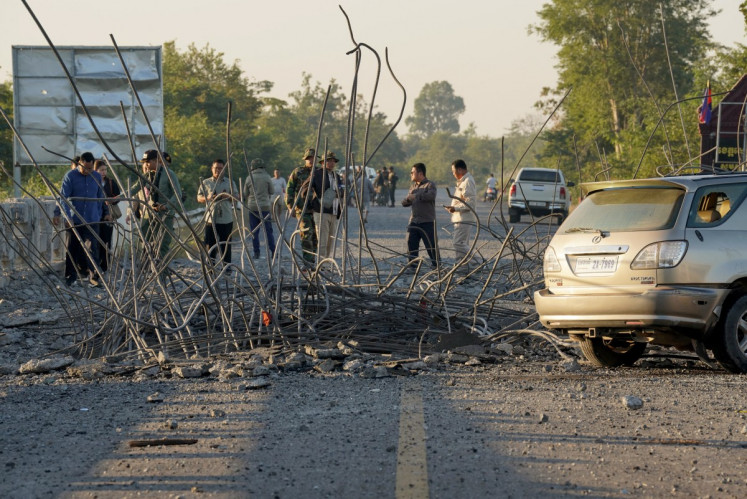Popular Reads
Top Results
Can't find what you're looking for?
View all search resultsPopular Reads
Top Results
Can't find what you're looking for?
View all search resultsProperty Tips
The growth in annual demand within the Jakarta residential market is predicted to outpace supply growth in 2012 and 2013 and lead to a continuation of the land price increases in all areas
Change text size
Gift Premium Articles
to Anyone
T
he growth in annual demand within the Jakarta residential market is predicted to outpace supply growth in 2012 and 2013 and lead to a continuation of the land price increases in all areas. What makes this property sector perform consistently well in spite of Jakartan’s lifestyle shift to high rise living?
The following are excerpts of an interview with property consultant, Cushman & Wakefield, related to the current condition of the Jakarta landed house market:
Question: What is the current trend in landed house?
Answer: Positive growth in sales rates was observed in all areas during 2011. The demand growth of landed residential units was still higher than supply growth. In some prominent residential estates, developers trusted track records, access to activity locations and comprehensive infrastructure and facilities were the main considerations in buying decisions. National economic stability and decreasing KPR (housing loan) rates were also supporting factors during 2011, which successfully improved the purchasing motivation of prospective consumers.
How is the demand for landed houses amid the growing popularity of living in an apartment in Jakarta? If there is a rising demand for landed house, what are contributing factors?
Demand for landed houses is still increasing despite the growing popularity of living in an apartment. Most buyers of landed houses are end-users — typically, young families looking for their first home. The continued decline in the mortgage rate made it the most preferred method of payment in all housing segments, used by 72 percent of buyers in the lower segment, 83 percent in the lower-middle segment, 56 percent in the middle- and upper-segment and 48 percent in the upper-middle segment, respectively. Ownership of land (as land prices grow over time) is still important to them.
What landed housing projects are now in progress?
Recently launched projects include Summarecon Bekasi (Bekasi), Sentul Nirwana (Jonggol, Bogor), Suvarna Padi (Tangerang)
How great is property developers’ interest in building landed houses?
Still active, as our observations showed that the residential estate supply grew by 31.5 percent during the second half of 2011, the total planned area of Greater Jakarta landed residential property was recorded at about 50,748 ha. A total of 294,103 housing units had been launched during the second half of 2011, reflecting 1.5 percent half year to half year growth, the same growth as that in the first half of 2011, and representing 3.1 percent year-on-year growth.
Of all the areas in Greater Jakarta, the housing units in Tangerang captured the largest proportion of the supply at 47 percent. In terms of planned areas, Bogor-Depok had the largest portion at 19,208 hectares and only 14.8 percent of them had been developed by end of 2011. In summary, developers are still actively developing their undeveloped land.
How are the market prospects for landed houses in Jakarta in the future?
Despite continued demand growth, 2012 is projected to be a cautious year for both developers and buyers. Several planned national policies will be effectively applied in 2012, such as the planned incremental increase of oil prices in the second quarter of 2012 and the implementation of restrictions on the maximum loan-to-value ratio at 70 percent of sales price for housing mortgages as regulated by Bank Indonesia, which potentially will have negative impacts on sales activity in 2012. However, developers are predicted to continue to actively launch several new products and continue developing infrastructure and facilities.
How is the progress of the property foreign ownership regulations in Indonesia?
Currently all foreigners (as individuals) are not allowed to buy any property in Indonesia under Hak Milik or Hak Guna Bagunan land titles. Foreigners are allowed to buy properties under Hak Pakai titles or a Long Term Lease Arrangement. The government is in discussions to extend the Hak Pakai period to 60 years, giving foreign buyers more security. However, the law granting this extension has yet to be released.










